About 20% of dishwasher failures are caused by clogs and drainage issues, according to home maintenance studies.
If you’ve ever opened your dishwasher to find a pool of dirty water at the bottom, you know firsthand how frustrating and messy it can get.
Clogs don’t just stop the cleaning cycle; they can cause leaks, bad smells, and even damage to your kitchen floors if ignored.
What many people don’t realize is that dishwasher clogs often build up slowly, sending small warning signs long before a full breakdown happens.
Wondering how you can tell when a clog is serious enough to call in the pros?
Let’s look into what causes clogs, how to spot the signs early, and why working with a top appliance repair company can save you a lot of time and even more money.
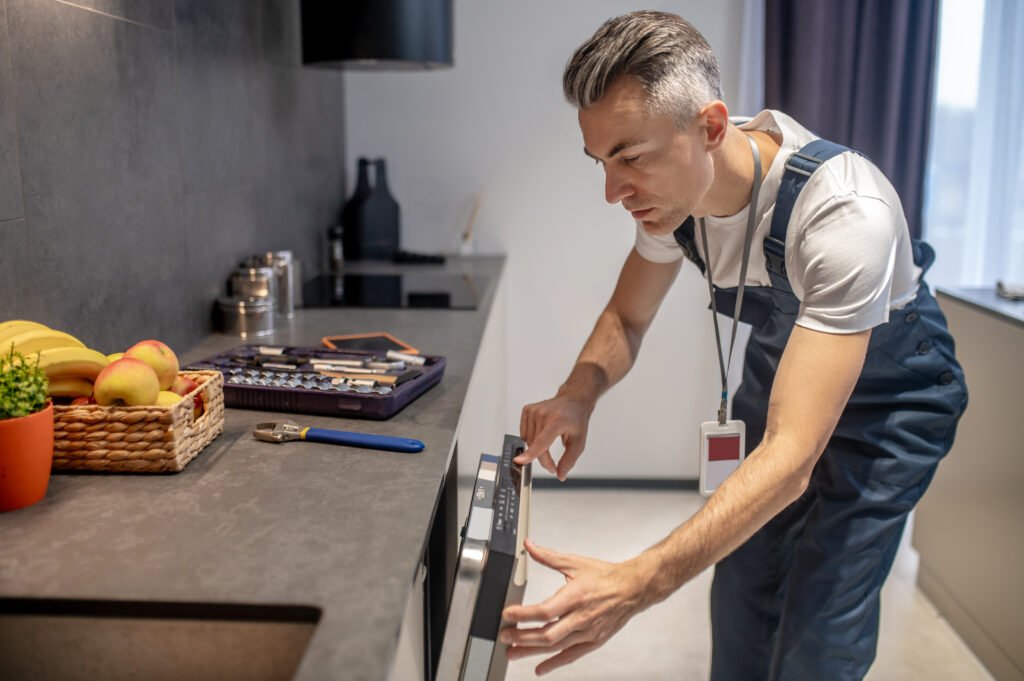
Why do Dishwashers Clog?
Clogs happen when food, grease, soap scum, or broken parts block the normal water flow inside your dishwasher.
Food Debris
Even if you scrape your plates, small food particles can slip through and clog the drain filter or spray arms. Over time, this sludge hardens and traps more debris.
Grease Buildup
Fat and grease from pots and pans might look harmless when rinsed with hot water. But once they cool, they stick inside hoses and pipes, leading to stubborn blockages.
Soap Residue
Not all dishwashing detergents dissolve cleanly. Some leave behind a sticky film that can clog filters, strainers, and pumps, especially if you use too much soap.
Broken Parts
If a small piece of glass, a cracked dish, or even a fork tine breaks off during a cycle, it can jam the drain pump or hose and cause a full system backup.
Hard Water
Mineral deposits from hard water don’t just leave spots on glasses, they can clog spray arms, filters, and hoses over time.
Every clog starts small. If you catch it early, you can often fix it before it leads to expensive repairs.
Early Warning Signs Your Dishwasher Is Starting to Clog
Most dishwasher clogs don’t happen overnight. Your machine usually tries to tell you something’s wrong long before it fully stops working.
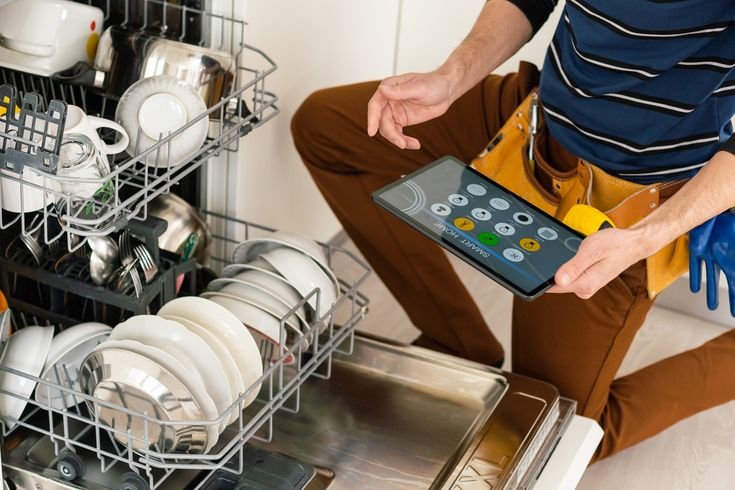
Water Left at the Bottom
A little puddle after a wash cycle is a red flag. Water should completely drain between cycles.
Bad Smells
If your dishwasher smells like a swamp or rotten food, trapped debris is often the cause.
Slow Drainage Sounds
You might hear strange gurgling or slow-draining noises during the cycle. That’s water struggling to get past a blockage.
Dishes Coming Out Dirty
If your dishes aren’t as clean as they used to be, even after a full cycle, the spray arms or water lines could be partially clogged.
Leaks Around the Door
Water finding its way out of the machine could mean that it’s not draining properly inside.
What You Can Try Before Calling a Pro
There are a few basic steps you can safely take yourself if you suspect a minor clog. But it’s important to know your limits; DIY fixes work only if the problem is small.
Check and Clean the Drain Filter
The filter is usually located at the bottom of your dishwasher. Remove it, rinse it under hot water, and scrub away any stuck-on grime with a toothbrush.
Inspect the Spray Arms
Lift off the spray arms and check for food particles or mineral buildup in the holes. You can clean them with a toothpick or a gentle stream of water.
Run a Vinegar Wash
Pour a cup of white vinegar into a dishwasher-safe bowl, place it on the top rack, and run the hottest cycle. Vinegar can help dissolve minor grease and soap scum.
Check the Drain Hose
If you’re comfortable, you can pull your dishwasher out a few inches and inspect the drain hose at the back. Look for any obvious kinks, clogs, or leaks.
If you try these steps and the water still won’t drain, or the smells come back, it’s time to bring in a professional.
How a Top Appliance Repair Company Fixes a Clogged Dishwasher
When you call a reputable appliance repair company, here’s what typically happens:
Full System Inspection
The technician checks the drain filter, pump, drain hose, and garbage disposal connection. They look for both clogs and signs of mechanical failure.
Drain Pump Testing
They test whether the drain pump is working correctly. If it’s burned out or jammed, it might need to be repaired or replaced.
Hose Clearing by a Top Appliance Repair Company
Specialized tools clear out blockages deep inside hoses that regular homeowners can’t reach.
Component Repair or Replacement
If the clog caused damage, like a cracked impeller or burned-out motor, a technician experienced in handling small appliance repair Kelowna BC can replace the part quickly and safely.
System Testing
After repairs, they run full diagnostic cycles to make sure the dishwasher drains, cleans, and runs like new.
Professional service gets your dishwasher back to peak performance, often in just one visit.
Simple Habits To Prevent Future Clogs
Even the best repairs won’t last long if you don’t change a few small habits. Here’s how to keep your dishwasher running smoothly for years to come:
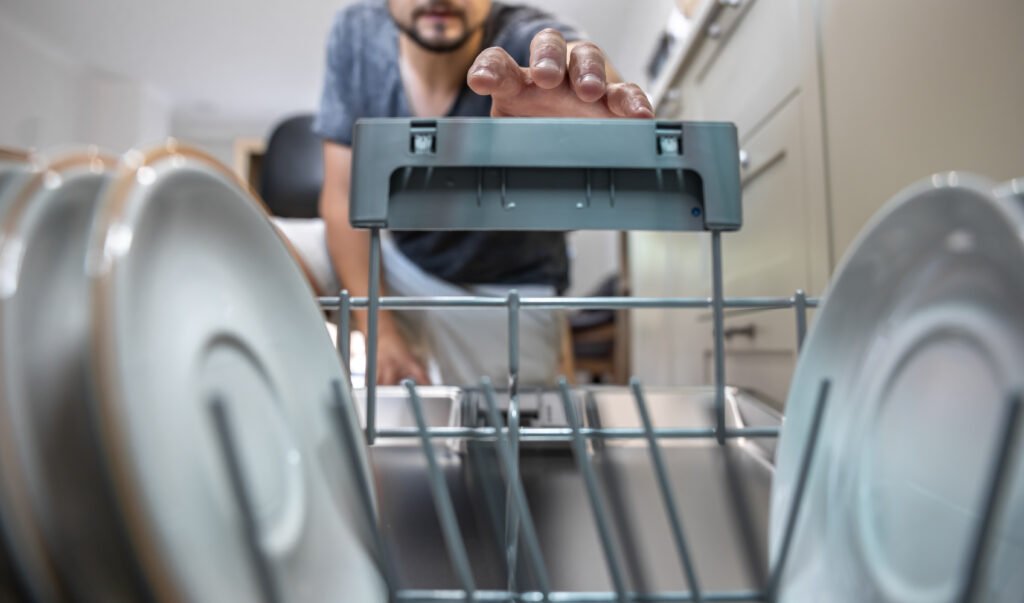
Scrape, Don’t Rinse
Remove large food pieces, but you don’t need to fully rinse dishes. Modern dishwashers work better when they detect food particles, but too much solid waste still causes clogs.
Clean the Filter Monthly
A quick rinse under hot water once a month can prevent a lot of trouble.
Use the Right Detergent
Choose a high-quality detergent and avoid using too much. Excess soap can leave behind a sticky film that traps debris.
Run Hot Cycles Regularly
Hot water cycles help dissolve grease buildup before it becomes a problem.
Check the Drain Hose Annually
Make sure the hose isn’t kinked or clogged. A simple inspection every year can prevent sudden breakdowns.
These easy maintenance habits take less than 10 minutes a month and can add years to the life of your appliance.
When to Call a Top Appliance Repair Company Immediately
Sometimes it’s clear that you shouldn’t wait to call a top appliance repair company professional. Here’s when to pick up the phone right away:
- Water is leaking from the base of the dishwasher
- A burning smell or electrical odor during a cycle
- Dishes consistently come out dirty even after a full cycle
- Water is not draining at all after basic cleaning
- Unusual noises like grinding, buzzing, or humming
Delaying repairs can turn a simple clog into a broken pump, damaged floors, or even an electrical hazard. Fast action now can save you thousands later.
Final Thoughts
A clogged dishwasher isn’t just an inconvenience, it’s a warning sign that something needs attention. Small problems can snowball quickly if you don’t address them early.
By understanding what causes clogs, spotting early warning signs, and knowing when to call in a trusted appliance repair company, you protect both your home and your wallet.
If your dishwasher isn’t draining right, smells bad, or just isn’t cleaning like it used to, don’t wait for the problem to get worse. Working with an experienced team like Advanced Appliance Repair Kelowna means you’re not just getting a quick fix, you’re getting peace of mind.
Our Red Seal certified technicians bring years of expertise to every repair, offering 24/7 service to make sure your home stays running smoothly. With a focus on honest service, fast response times, and repairs that last, Advanced Appliance Repair Kelowna is a name homeowners across the city trust when appliances stop doing their job.
Take action early, and let skilled professionals help keep your kitchen moving at full speed!


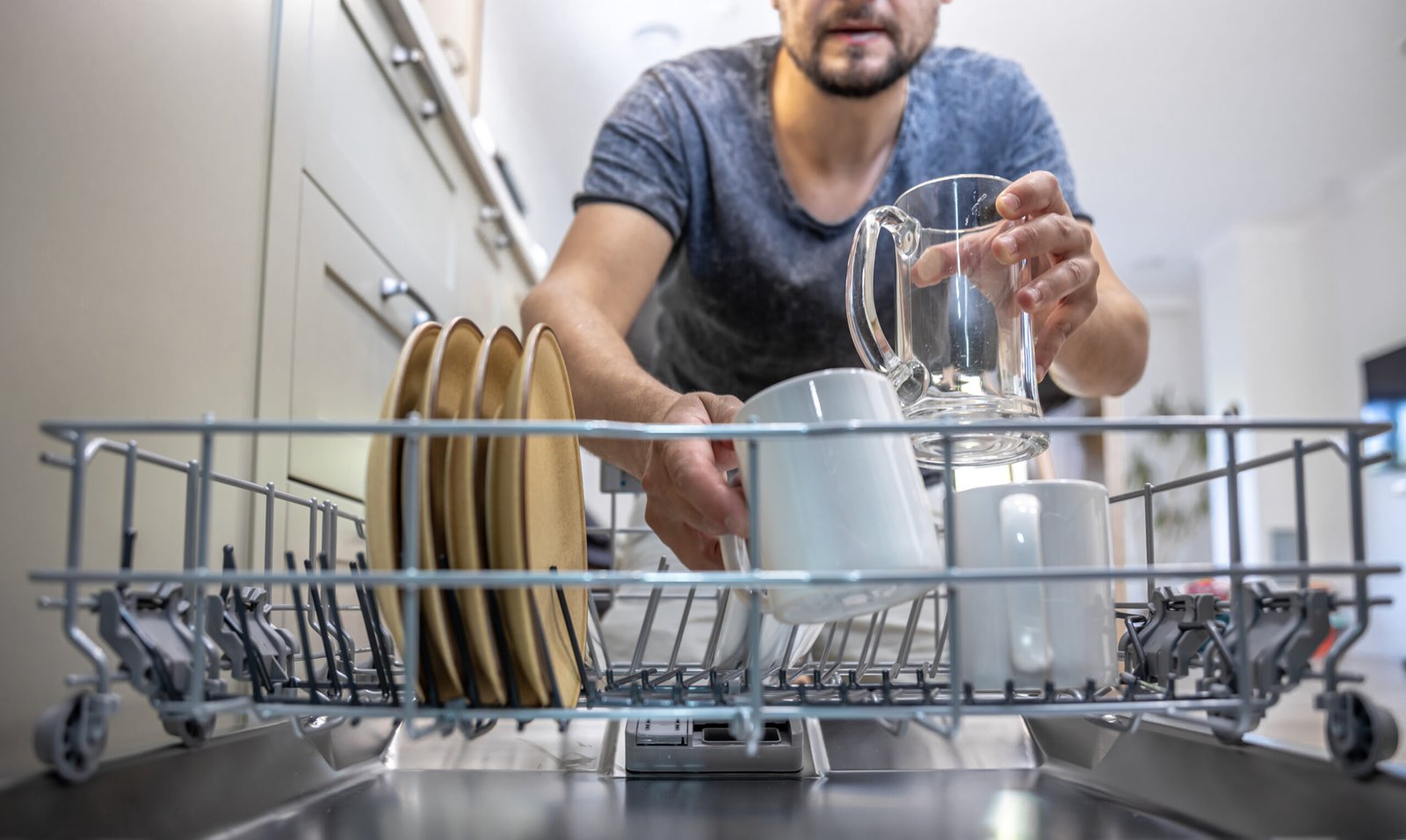
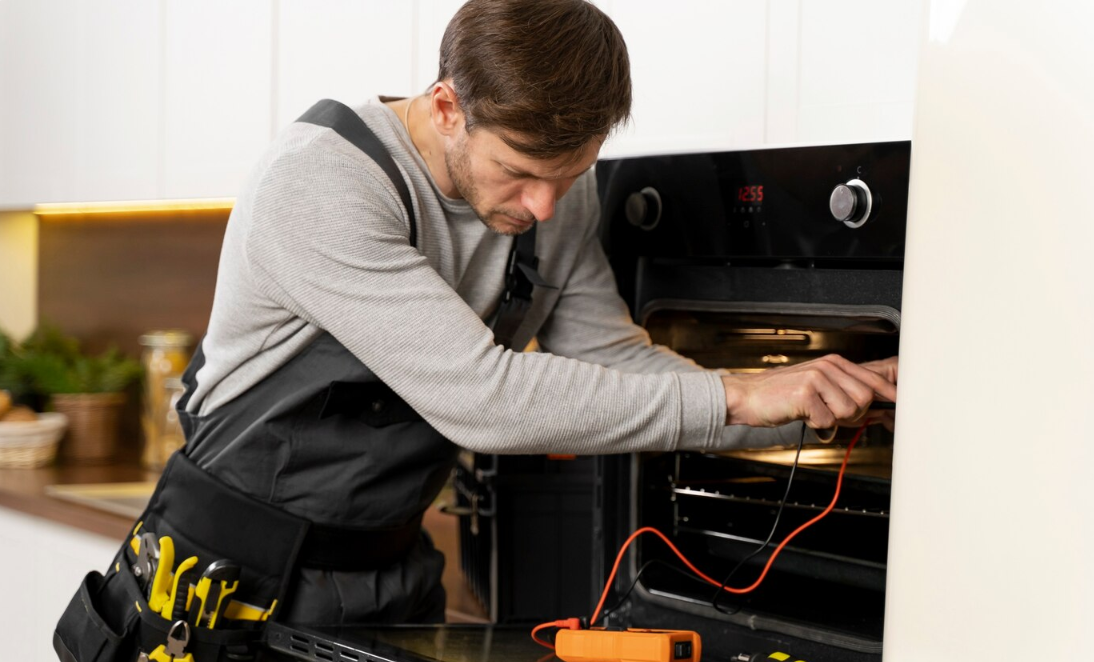


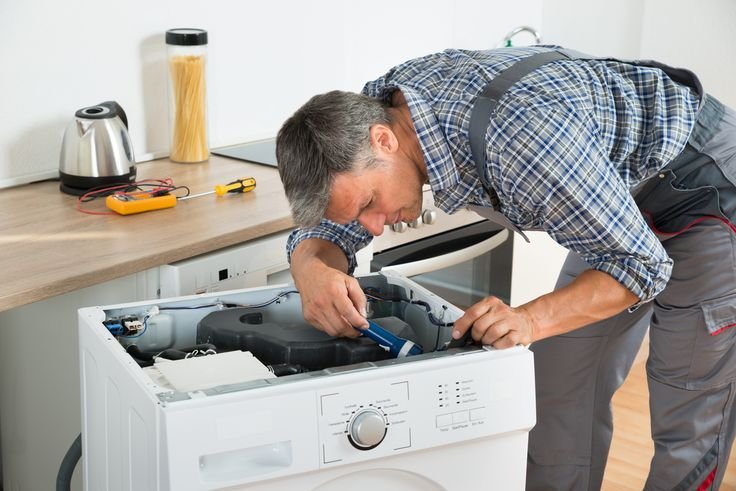


13 Responses
Fun88 down again? linkvaofun88 promises to have the working links. Going to give it a shot. Hope it saves me some frustration! Check it out: linkvaofun88
Looking for a new way to bet on the go? I downloaded the b29 bet apk and it’s actually pretty solid. Runs smoothly on my phone. Worth a download if you’re out and about. Get it here: b29 bet apk
59r is pretty okay! I was looking around, I was bored so I tried it. It seems to work as intended with no issues. Maybe you’ll have even more fun. Check out 59r, might just be your lucky day.
I will immediately seize your rss feed as I can’t in finding your email subscription link or e-newsletter service. Do you have any? Please let me know in order that I may just subscribe. Thanks.
It’s very easy to find out any matter on web as compared to books, as I found this piece of writing at this site.
There is certainly a great deal to learn about this subject. I love all the points you have made.
I am sure this paragraph has touched all the internet users, its really really good piece of writing on building up new webpage.
I’ll immediately clutch your rss feed as I can not to find your email subscription link or e-newsletter service. Do you’ve any? Please allow me know so that I may just subscribe. Thanks.
I feel this is one of the most significant info for me. And i am glad reading your article. But wanna commentary on few common issues, The website taste is great, the articles is actually nice : D. Good job, cheers
Thank you for the good writeup. It in fact was a amusement account it. Look advanced to far added agreeable from you! By the way, how could we communicate?
This is a topic that is close to my heart… Take care! Where are your contact details though?
You made some decent points there. I looked on the net for more information about the issue and found most individuals will go along with your views on this website.
Whoa! This blog looks exactly like my old one! It’s on a completely different subject but it has pretty much the same layout and design. Great choice of colors!